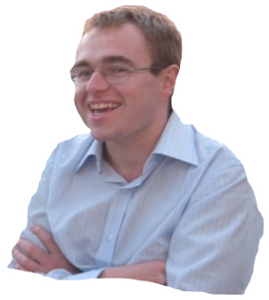Simon Beaumont

My current research interests span many aspects of heterogeneous catalysis, predominantly focused on exploitation of fundamental mechanistic understanding in the development of new, better (greener, more efficient, more selective) chemistry. This is achieved through (i) adoption of nanomaterials as well defined catalyst models, which are relatively uniform and permit access to more reliable correlations between characterisation and kinetic data and (ii) developing and using new in situ spectroscopic tools to probe catalytic materials under working conditions.
Biography
SKB completed his undergraduate studies at the University of Cambridge, obtaining the Norrish prize for overall distinction in Physical Chemistry, before undertaking a PhD with Prof. Richard Lambert (Cambridge), funded by a prestigious Cambridge University Domestic Research Scholarship. During this time he won a number of awards nationally (e.g. scholarship from the UK Society of the Chemical Industry (SCI)) and internationally (student award from the International Precious Metals Institute). The focus of this work was in the heterogeneous catalysis of synthetic transformations (such as enantioselective hydrogenation and C-C coupling) – of relevance to process chemists for fine chemicals and pharmaceuticals. Following his PhD research, SKB undertook post-doctoral work in the US with Prof. Gabor Somorjai (UC Berkeley), focusing on the use of colloidally prepared nanoparticles as model catalysts for understanding heterogeneously catalyzed bulk chemical transformations, such as Fischer-Trospch, Hydrocarbon Hydrogenation, and CO2 Hydrogenation. This work included extensive use of the Advanced Light Source synchrotron facility for a range of in situ X-ray spectroscopies – including the development of an in situ cell for soft X-ray Adsorption Spectroscopy (NEXAFS) and its application to mechanistic problems in Fischer Tropsch catalysis. In 2012 he moved to Durham UK, where he obtained prestigious Leverhulme trust and Addison Wheeler fellowships, allowing him to begin to establish his own independent research programme using nanomaterials and spectroscopy to improve our understanding of heterogeneous catalysts. This has included continued work on understanding the role of precious metals in Fischer Tropsch chemistry as well as new directions involving nano-assembly for building catalysis and developing our understanding of nanoparticle synthesis and fundemental processes in catalysis such as diffusion and structure changes under working conditions. In 2015 he was appointed as a University Lecturer, and promoted to Associate Professor in 2021.
